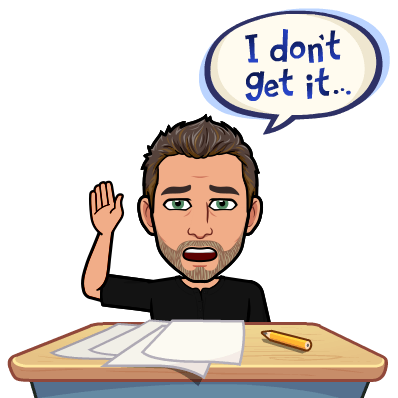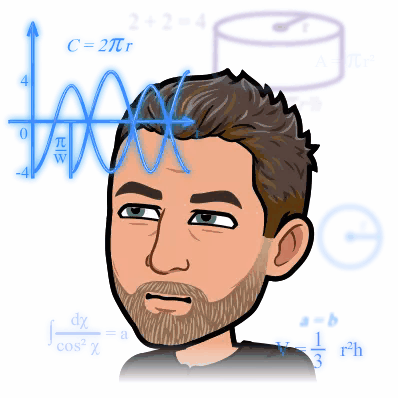When I was in graduate school in the early 1990s, there were theories about how problem solving and communication help people learn, but there was little real science to explain why.
Today, advances in cognitive science, neuroscience, linguistics, sociology, and computer science have shown increasing evidence for why some methods help learners more than other methods for different types of learning
- In Module 1, you experienced asynchronous learning individually.
- In Module 2, you experienced learning in asynchronous collaboration and discussion.
- In Module 3, you'll experience teaching through asynchronous collaboration and discussion.
The main difference between Module 2 and Module 3 is that, in 2, you summarized material. In 3, you need to present material in a new, creative digital format.
You will see several discussions already posted by me (Randall) in this forum. Do NOT add any new discussions. Here are the topics:
- Inclusion and Diversity in ODL (Online Distance Learning)
- Digital Citizenship, Responsibility, and Safety
- Learning Management Systems and Digital Analytics
- Gamification
- Social Environment and Culture in ODL
- Alternative and Virtual Reality (AR and VR) in ODL
- Open Educational Resources (OER)
- Assessment of ODL: Digital Microcredentials and Credentials (Badges)
- Digital Pedagogy in Low-Bandwidth Environments
This is what you have to do:
- Sign up for a Module 3 research topic. (Click the "Module 3" tab at the bottom of the sheet.
- You MUST work individually. In the past, I allowed partner work because there were so many people, but now, we have a small number, so I'd like to see your own work. You can help each other, but you must all have your own topic.
- Read the texts and watch the videos for your group's topic.
- Create a 5-7 minute video summary of the material. Include at least one new source that you found. Your summary must be a Pecha-Kucha presentation or a series of TikTok videos. (I explain this more later in the assignment.) At the end of your summary, ask 2-3 critical thinking questions that will help your colleagues apply these concepts to their settings as teachers. (We'd like you to lead these discussions because you are the experts for your subjects and contexts!)
- Read the summaries that the other groups created.
- Write thoughtful replies to the questions of at least 3 of the groups that are most interesting for you.

After we study it, we just post our summary like usual, right?
No. After you study it, you become the teacher for that topic. You (and your partner, if you have one), make a summary post including text and/or a video, and including several discussion questions. Then you (and your partner) moderate the discussion by replying to people and encouraging more discussion. (Follow the example that I gave in Module 2.)
And don't worry. You're professionals! You can do this!
Also, we know a lot of you are already experts in some of these areas. Please share your expertise with others and learn from each other.
Click here, and then click on the Module 3 tab to sign up for your topic.
If I have a partner, how should we communicate during the assignment? Should we use Moodle, or something else?
Great question! Use Moodle only for the work that you want your teachers to see. Use WhatsApp, Signal, email, or even meeting face-to-face when you work with your partner. Just show us the final products here.
What are we supposed to present in our presentation/post?
Your post should answer these essential questions:
- What does this theory claim?
- What scientific evidence is there for this theory?
- What are some limitations of this theory?
- What are some examples of activities based on this theory that would help people learn in Central Asian contexts?
- What are two questions that you'd like to ask your colleagues that will help them think critically about this theory and apply it creatively to their specific context?
So, we need to write a summary?
NO!Your post should be in ONE of these formats. The rules for the formats are very strict!
- A Pecha Kucha. This is an audio-visual presentation that includes your voices talking for exactly 20 seconds of each of 20 slides. Yes, that's right: 20 slides, with 20 seconds for each one. You can use the Pecha Kucha online app or another tool. Here's a Pecha Kucha explaining how to make a Pecha Kucha:
- A TikTok series. Yes, there's some pretty amazing educational content coming out of TikTok, and you're not too old to learn the most popular video-editing tool in the world. TikTok has recently extende it maximum video length to 10 minutes, but no one watches 10-minute TikToks! The platform is popular for its 30-90 second videos. So, if you choose this option, you need to creatively summarize all of your ideas into a series of videos totalling 5-7 minutes.
That's a lot to remember. Can you summarize it?
Of course.
- Choose one of the many fascinating topics on the list.
- Sign up with the link above.
- Work with your partner, or alone, if no one else signs up, to master the content that I shared and add a little of your own research.
- Prepare a presentation in one of the styles listed above.
- Share your presentation as a response to your topic (Topics are listed as posts by me in the responses to this post.)
- Moderate the discussion as people reply to your topic.
There are a lot of topics. Do I need to read all the material for each of them?
 No. You need to become the "teacher expert" for one of the topics. You'll present the summary lesson and monitor the discussion for that topic. For the other topics, learn as much as you want, and participate in the discussion. But I don't expect you to master all of these topics in a week.
No. You need to become the "teacher expert" for one of the topics. You'll present the summary lesson and monitor the discussion for that topic. For the other topics, learn as much as you want, and participate in the discussion. But I don't expect you to master all of these topics in a week.
I'm so sorry, Dr. G, but one more question. You see, I'm really a creative person, and the rules for our presentations seem really strict. Could I just make a 20-minute video, or write a report?
No.
Why?
Because of this:
This project moves quickly. You do not need to include all facilitators in your groups. Reach out to us if you have questions.
Reply to the facilitators questions by Feb 6.
Facilitators, reply to the replies by Feb 8.
| Status | Discussion | Started by | Last post | Replies | Actions |
|---|---|---|---|---|---|
|
|
|
0 |
|
||
|
|
|
0 |
|
||
|
|
|
3 |
|
||
|
|
|
3 |
|
||
|
|
|
18 |
|
||
|
|
|
10 |
|
||
|
|
|
8 |
|
||
|
|
|
13 |
|
||
|
|
|
9 |
|
||
|
Locked
|
|
|
8 |
|
